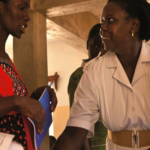Dr K K Aggarwal
healthysoch
New Delhi, July 17, 2019 ;
- The DNA Technology (Use and Application) Regulation Bill, 2019 was introduced in Lok Sabha on July 8, 2019. The Bill provides for the regulation of use of DNA technology for establishing the identity of certain persons.
- Same Bill had been previously introduced in Lok Sabha in August 2018, but lapsed.
- Use of DNA Data: Under the Bill, DNA testing is allowed only in respect of matters listed in the Schedule to the Bill. These include offences under the Indian Penal Code, 1860, and for civil matters such as paternity suits. Further, the Schedule includes DNA testing for matters related to establishment of individual identity.
- Collection of DNA: While preparing a DNA profile, bodily substances of persons may be collected by the investigating authorities. Authorities are required to obtain consent for collection in certain situations. For arrested persons, authorities are required to obtain written consent if the offence carries a punishment of up to seven years. If the offence carries more than seven years of imprisonment or death, consent is not required. Further, if the person is a victim, or relative of a missing person, or a minor or disabled person, the authorities are required to obtain the written consent of such victim, or relative, or parent or guardian of the minor or disabled person. If consent is not given in these cases, the authorities can approach a Magistrate who may order the taking of bodily substances of such persons.
- DNA Data Bank: The Bill provides for the establishment of a National DNA Data Bank and Regional DNA Data Banks, for every state, or two or more states. DNA laboratories are required to share DNA data prepared by them with the National and Regional DNA Data Banks. Every Data Bank will be required to maintain indices for the following categories of data: (i) a crime scene index, (ii) a suspects’ or undertrials’ index, (iii) an offenders’ index, (iv) a missing persons’ index, and (v) an unknown deceased persons’ index.
- Removal of DNA profiles: The Bill states that the criteria for entry, retention, or removal of the DNA profile will be specified by regulations. However, the Bill provides for removal of the DNA profiles of the following persons: (i) of a suspect if a police report is filed or court order given, (ii) of an undertrial if a court order is given, and (iii) on written request, for persons who are not a suspect, offender or undertrial, from the crime scene or missing persons’ index.
- DNA laboratories: Any laboratory undertaking DNA testing is required to obtain accreditation from the Board. The Board may revoke the accreditation for reasons including, failure to: (i) undertake DNA testing, or (ii) comply with the conditions attached to the accreditation. If the accreditation is revoked, an appeal will lie before the central government or any other authority notified by the central government. Further, every DNA laboratory is required to follow standards for quality assurance in collection, storing, and analysis of DNA samples. After depositing the DNA profile for criminal cases, the laboratory is required to return the biological sample to the investigating officer. In all other cases, the sample must be destroyed.
- Offences: The Bill specifies penalties for various offences, including: (i) for disclosure of DNA information, or (ii) using DNA sample without authorization. For instance, disclosure of DNA information will be punishable with imprisonment of up to three years and fine of up to one lakh rupees.







